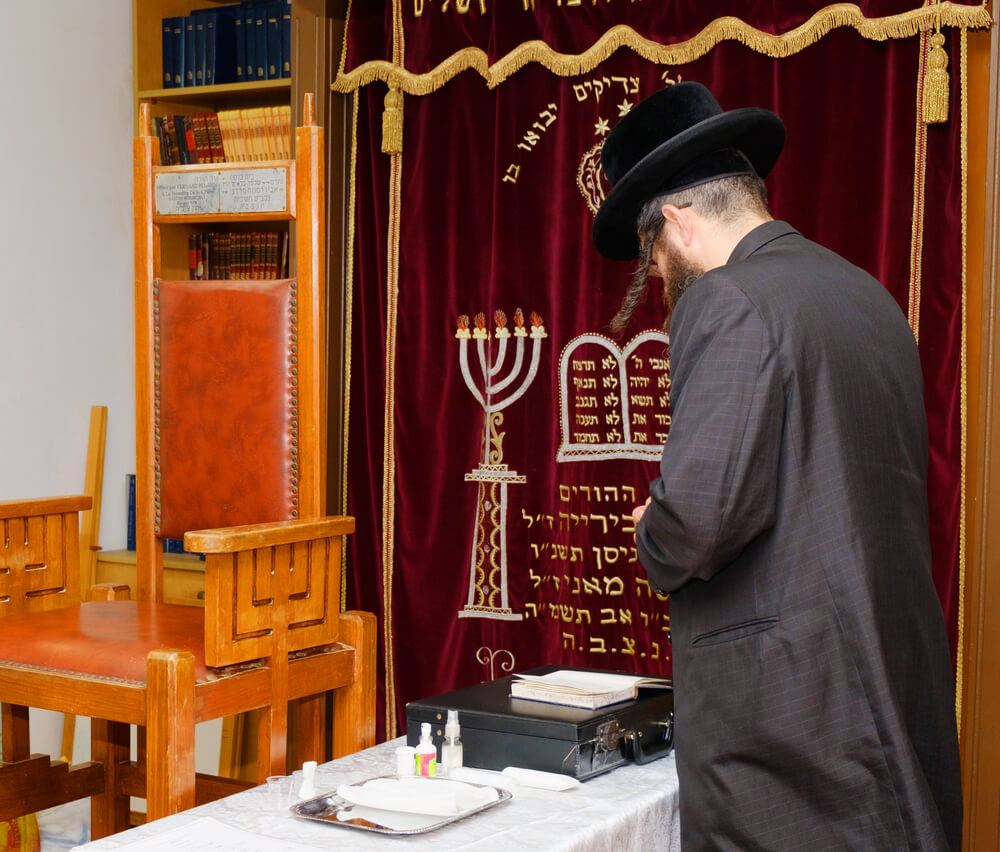Having a new child can keep you busy and require an overwhelming amount of decisions that you need to make, with all of them seemingly essential at the time. The decision to circumcise your new son might be an easy one, but it can be made more complicated by choosing between a doctor in a clinical setting or a more traditional Jewish mohel. Let’s take a look at some of the small details of this procedure so that you can ultimately make a more informed decision.
What Is a Mohel Circumcision Procedure?
Let’s start with the basics. A circumcision procedure is something that has been performed on infant boys for as long as anyone can remember. Though some groups may depict it as a traumatic procedure or even label it as mutilation, it is actually a very common thing to do. It can prevent complications and infections as your child grows.
If left intact, a male’s foreskin can be a major vector for various types of infection. It must be pulled back and cleaned at a minimum of once daily, if not more often, for the best results. Not only is this a large task to hand to a child, but it can become difficult as a man ages and loses strength in his hands.
Additionally, the foreskin can progressively tighten. This leads to a condition called phimosis. This is where the foreskin tightens around the head of the penis and essentially strangulates it. It is painful and can require surgical intervention.

Jewish Circumcision Mohel
When it’s time to perform the circumcision, a Jewish mohel in Tamarac Florida will go through a series of steps first. He will want to make sure that the infant is healthy and strong enough to go through a procedure like this. If there is any doubt as to the baby’s ability to have a successful outcome, the mohel will delay the procedure until he is stronger.
Next, there will be what’s called a brit milah. This is a celebration of the circumcision of the infant boy. Tradition initially dictated that this was done with immediate family members. As time has passed, however, this event has evolved into a full congregational celebration. It is very common for this celebration to happen during the morning hours or at least early on in the day. Any number of people can be present, from only the child’s father up to the full congregational membership body.
Jewish Circumcision Doctor
The process of having a circumcision performed by a doctor in a hospital setting is much different in the events leading up to and following the procedure. In a clinical setting, the circumcision is typically performed much earlier. The parents have the option to have the procedure done when their child is of any age, but the most common method is to have it done before they leave the hospital after delivery.
Many of the same precautions are taken in terms of having a healthy baby to perform the circumcision on. If there is any doubt about his condition, the doctor will put the procedure on hold until his condition is more stable.
There also seems to be more leeway in terms of who actually performs the procedure. Often, it is the child’s pediatrician, but there are some hospitals that allow the father of the baby to perform circumcision under the guidance of the attending doctor.
Of course, a medical doctor performing a circumcision does not host any events or celebrations leading up to the procedure, essentially treating it like just another day for them. The baby is typically given medication to help keep him calm for the procedure, and he is returned to the mother generally acting drowsy and needing to sleep.
It’s important to note a key difference between having this procedure done by a mohel versus a doctor. In the hospital setting, the baby is younger. They likely have had very little time to bond with their mother, and the breastfeeding relationship is not well established. Having a procedure like a circumcision, although generally a simple operation, can have a significant impact on this relationship. A mohel waits the standard eight days to perform the procedure, giving mom and baby time to bond and get settled with each other before he has to recover from the circumcision.

What Does a Mohel Do?
A mohel is a strong support person for you and your child and will be the one to actually perform the circumcision. As far as the procedure itself goes, it is typically brief and without any major complications. The mohel will likely use a Magen shield. This helps guide his blade and provide protection to the child.
The child’s father and the mohel will advance through three different stages of the procedure:
- Me’ilah: This is when the foreskin is removed. Often, it is only the redundant skin and not the full foreskin. This eventually led to the second step of the procedure being added.
- P’riah: Around 140 AD, this step was added to the circumcision process. It involves removing the full foreskin, including any mucosal layers that are attached to the underside of the penis. This creates a cleaner looking result.
- M’tzitzah: The last step involves sucking the blood out of the wound to ensure proper healing. The process includes glass tubes and cotton balls.
These three steps are the main pillars of the circumcision process. They have changed as medical knowledge has improved and provided us with scientifically backed information.
One of the other main factors is that the father is the person actually performing the procedure while the mohel provides assistance, guidance, and support.
Overall, the techniques used by a doctor and a Jewish mohel in Tamarac Florida performing a circumcision are very similar. The setting that the procedure is done in and the recovery period are probably the starkest differences.
A procedure performed by a mohel has a brit milah celebration in the hours leading up to the procedure and is done at a time when the relationship between mother and baby is well established. In contrast, a doctor does the procedure often within 24-48 hours of the baby being born, which can interrupt the crucial hours of the bonding process. This distinction can make a great difference in the recovery period for the child. Your baby deserves the best care for a procedure that can so drastically change his life and impact his future self-image.
Need more assistance in deciding whether to use a mohel or a doctor for your child’s circumcision? Dr. Andrew Krinsky of South Florida Mohel is a board-certified surgeon and a religiously ordained mohel with more than three decades of circumcision experience. Contact our office for more information about a safe and meaningful circumcision for your son.







